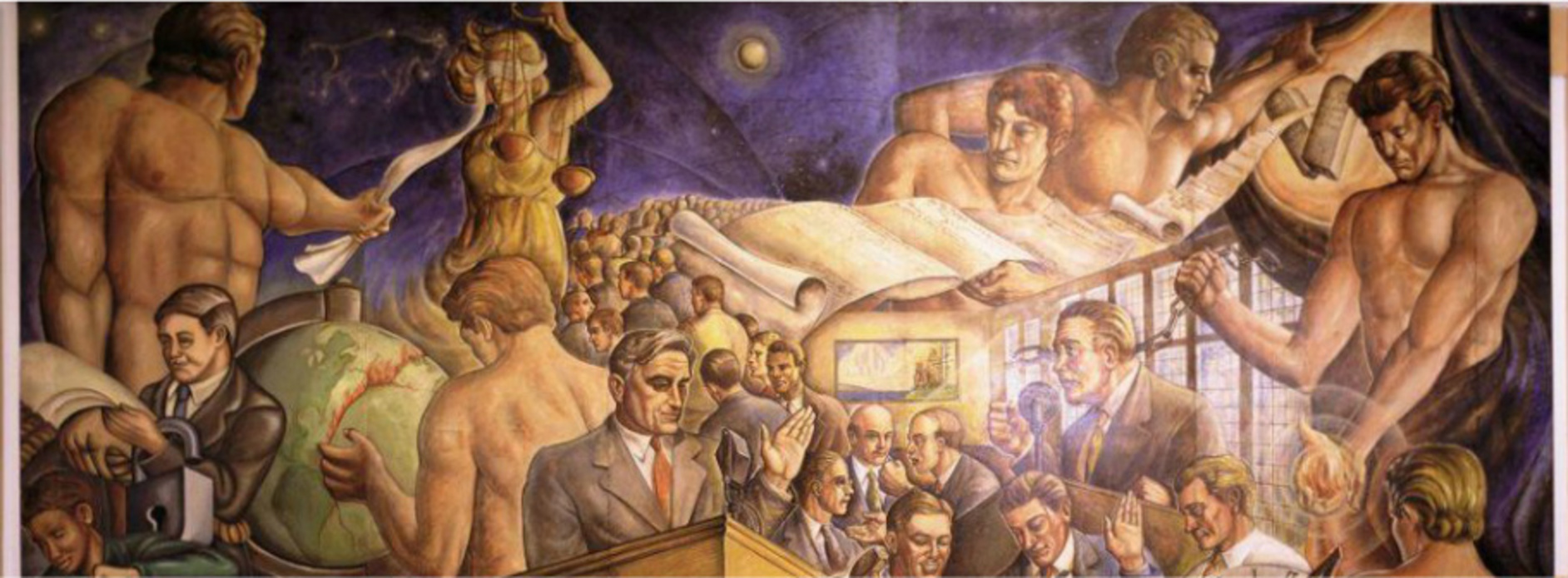Friday, June 24, 2016
Free speech in the public workplace: a circumstantial right
Spend a little bit of time around the City Club or here at its blog, and you get a quick sense of how important the concept of free speech is to this private institution. After all, the entire foundation of the City Club is built upon the notion of a free exchange of ideas. But free speech is not an unbounded right. And appreciating free speech doesn’t necessarily tell us much about where the limits are drawn. The speech that is accepted—even encouraged—inside the doors of a private club devoted to free speech may well be legally silenced at a workplace or classroom around the corner.
Indeed, a pair of recent opinions from a United States Court of Appeals in Chicago reflects the nuanced notion of free speech in the contemporary public workplace. Often, the motivation behind the speech--or the attempt at silencing it--may indicate whether it is free or not.
In the most recent case, a Chicago federal appeals court reaffirmed the rule that the free-speech rights of public school teachers are limited when they’re in the classroom. That is, a teacher, as public employee, has a right to speak freely on a matter of public concern. But as Judge Diane Wood, who was on the reported to be on the short list for all three of President Obama’s Supreme Court nominations wrote, “[i]f the speaker is not wearing her hat as a citizen, or if she is not speaking on a matter of public concern, then the First Amendment does not protect her.”
In Lincoln Brown v. Chicago Board of Education, sixth-grade public school teacher Lincoln Brown intercepted a note being passed by students that contained music lyrics with the racial slur known as the “N-word.” He then used the occasion to give an impromptu lesson—as a teacher, according to the court—about the corrosive impact of the word in society. Although perhaps clumsy, it was unquestionable that Brown was acting as a teacher--rather than a concerned citizen--and that made all the difference in the free speech analysis.
According to the court, "[t]o the extent that Brown's discussion of racial slurs was an attempt to quell student misbehavior, it was still pursuant to his official duties," and was therefore unprotected by the First Amendment. Unfortunately for Brown, he was suspended because the Chicago Board of Education has a zero-tolerance policy for using racial epithets in front of students in the classroom, regardless of the purpose or context. And as a teacher wearing his employee hat, Brown was no different than an employee working for a private employer; his speech was unprotected by the First Amendment.
That is true even though he was suspended for using a racial slur while trying to teach kids why using the word is an act of anti-social behavior. In that sense, his suspension might have been a bad idea, "but it did not trample on his First Amendment rights."
The result in Brown was very different than a May opinion from the same court, which also turned on the scope of first amendment protection for public employees. In Yahnke v. Kane County Illinois, a sheriff fired his politically-active deputy based on the sheriff's belief that the deputy would run against him for Sheriff in the future. Unlike in Brown, however, in Yahnke, the court noted that a jury could find that "the Sheriff fired Yahnke because of his political ambitions and his political opposition to the Sheriff, a motive for the termination that is impermissible under the First Amendment."
The nuance that accompanies free speech rights, as reflected by these two recent appeals, indicates how fact-dependent free speech can be. Why a public employee says something may be just as important as what is said. That's not to say that restricting teacher speech as the Board did in Brown, for instance, is a good idea--even if it is legal. But that's the Board's prerogative.
As Judge Wood wrote, borrowing from Justice Scalia, sometimes it would be nice to have a "stupid but constitutional" stamp. Indeed, constitutionality and wise policy aren't always in alignment. And certainly not every employer, private or public, takes a City Club view of speech rights. Nor should they. Employers in particular have specific goals to achieve that have nothing to do with the viewpoints of their workers. Artificially permitting free speech where none is required is unlikely to be conducive to those goals. The workplace, after all, isn't the town square. And the First Amendment isn't absolute.
Dustin Dow is a member of The City Club of Cleveland and an associate attorney in the Cleveland office BakerHostetler, LLP where he practices class-action, insurance and employment-related litigation.






